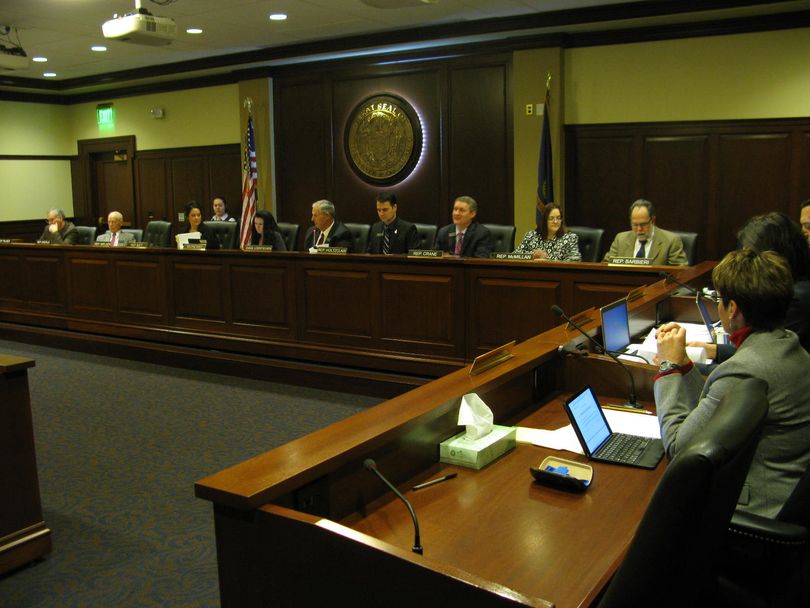House State Affairs rejects first bill of the session, a PUC pipeline safety fines bill

The first bill proposed to a legislative committee this session – a pipeline safety program fines bill from the Idaho Public Utilities Commission – has been rejected. As he began his presentation to the House State Affairs Committee this morning, Idaho PUC Commissioner Paul Kjellander, a former state representative, recalled a lobbyist once saying, “The earliest Christians get the hungriest lions.” He said, “I’m first out of the chute and I hope you’re not too hungry today.” But they were.
The PUC’s bill would have raised the maximum fine for pipeline safety violations from $2,000 a day, a level set 45 years ago and never changed, to a maximum of $100,000 a day. The federal standard is $200,000 a day, and Idaho’s lost some federal pipeline safety funds for being so far below the standard, but Kjellander said that’s not the main problem. All surrounding states have adopted the federal standard, except Utah, which is at $100,000 a day. Kjellander said the federal maximum fines were set five years ago after a San Bruno, Calif. pipeline tragedy that claimed several lives. The real problem is the perception that Idaho is lax, he said.
“Compliance will still be the focus, not fines,” Kjellander said. “The real issue is a public perception issue that if an event did occur, that … in those most gross negligent scenarios, it would look to some as if we weren’t necessarily doing our job.” He noted that ratepayers aren’t responsible for fines; only shareholders are.
Rep. Joe Palmer, R-Meridian, moved to reject the proposed bill, and not even allow a hearing on it. “Going from $2,000 to $100,000 I think is a long reach - I can’t even go there,” he said. “It looks to me like we’re just grabbing money here and putting it into the general fund. … We’re just doing this to look good instead of for a purpose. I think if we’re going to start fining somebody at a huge amount like that, we better have a good purpose,” such as directing the fines toward safety or training.
Rep. Melissa Wintrow, D-Boise, made a substitute motion to introduce the bill, allowing a full hearing. “I think it’s worthy of discussion,” she said. “I have a lot more questions. And I think the public safety and environmental concerns are enough to have a discussion.”
Rep. Brent Crane, R-Nampa, said, “This is a significant increase in a fine. Maybe they should have looked at stepping this fine up over a period of time.” Rep. Ken Andrus, R-Lava Hot Springs, countered, “I’m not afraid of a hearing. I think we oughta hear things out and see if we’re really justified in passing this or not.”
After Rep. Gayle Batt, R-Wilder, called for a roll-call vote, Wintrow’s motion was rejected, 6-9, and Palmer’s passed on a divided voice vote. Those voting in favor of Wintrow’s motion to introduce the bill were Reps. Loertscher, Andrus, Smith, McCrostie, Jordan and Wintrow; those voting against were Reps. Batt, Crane, Palmer, Sims, Barbieri, Holtzclaw, McMillan, Bateman and Cheatham. Reps. Luker and Nielsen were absent.
